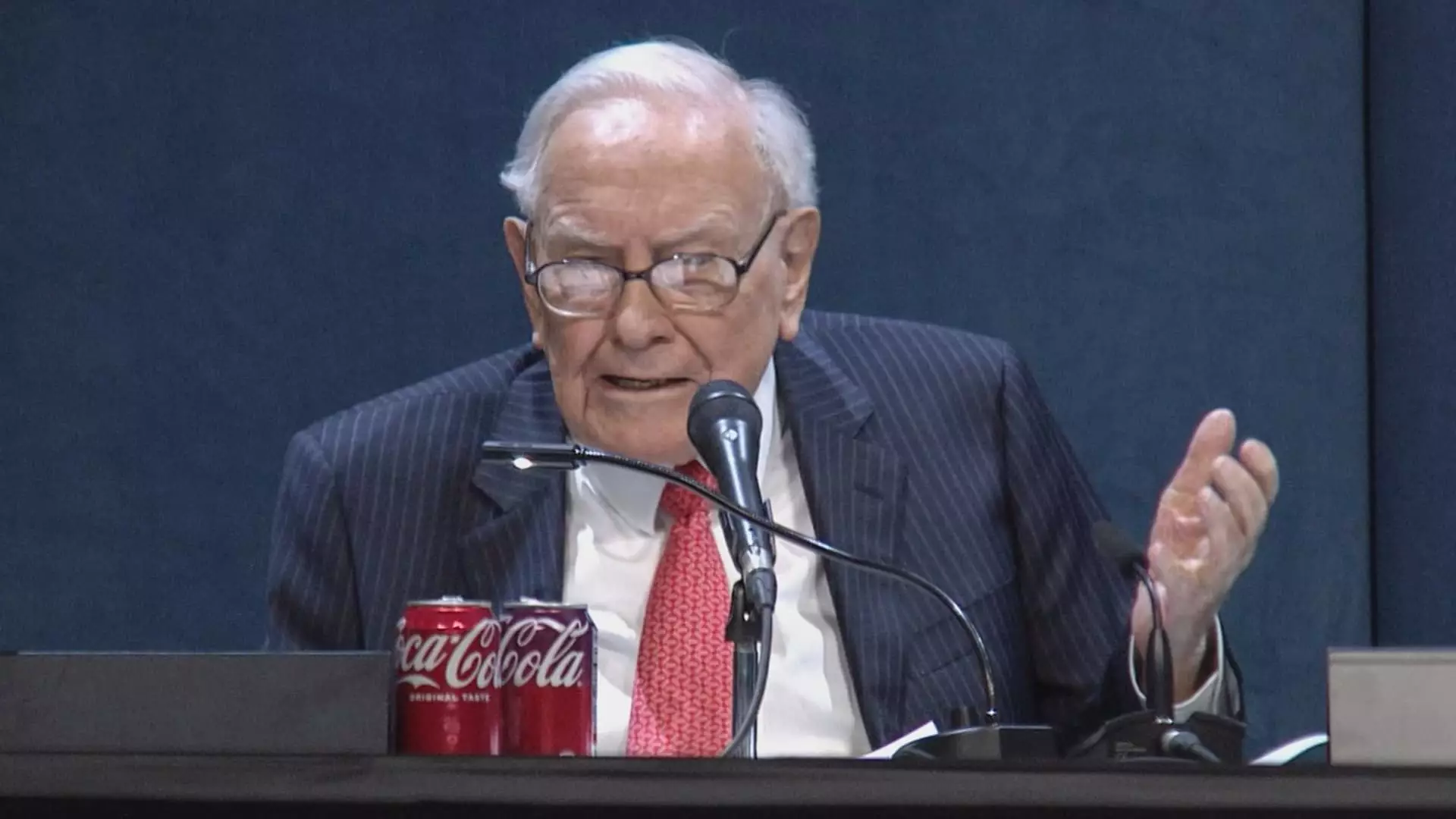For decades, Berkshire Hathaway has been perceived as the paragon of investment wisdom—an impregnable vault guided by the legendary Warren Buffett. Yet recent developments reveal that this fortress is not as invulnerable as it once seemed. The company’s second-quarter results highlight a conspicuous decline in operating earnings, marking a 4% drop year-over-year to $11.16 billion. While some sectors like railroads and energy have maintained or increased profits, the overarching narrative is no longer one of unwavering strength. Instead, it exposes vulnerabilities rooted in insurance underwriting, an area that has historically been a bedrock of Berkshire’s profits but now dragging down the entire conglomerate.
This dip demonstrates that Buffett’s investment universe is not immune to the broader economic turmoil and competitive pressure. The reliance on diversified industries can be a strength, but in a rapidly changing global landscape, that diversification appears increasingly fragile. The recent stock decline of over 2% on both Class A and B shares underscores investor skepticism—an undercurrent suggesting doubts about whether Buffett’s conventional wisdom remains effective. With Berkshire’s shares down approximately 12% from its peak earlier this year, the allure of Buffett’s legendary consistency is waning and exposing cracks in the façade of invulnerability.
The Shift in Investment Strategy and Its Implications
One of the most startling revelations has been Berkshire’s first-ever significant write-down of its Kraft Heinz stake—reporting a $3.8 billion loss on a 27% holding. This move is a stark departure from Buffett’s traditional approach of value investing and patience. It signals a willingness to admit past mistakes that perhaps shouldn’t have been made in the first place, especially given Buffett’s famed aversion to unnecessary losses. The fact that Kraft Heinz is reportedly considering spinning off its grocery unit only compounds these doubts, suggesting that even Buffett’s trusted investments have become less predictable and more fragile.
This sharp correction also raises questions about Berkshire’s long-term strategy. Buffett’s recent decision to pause share repurchases and reduce stock holdings reflects an overall cautious stance that might be warranted but also signals a potential hesitancy to deploy capital effectively. Critics might argue that Berkshire is missing opportunities for growth and that Buffett’s legendary patience could be giving way to caution that borders on stagnation. The stock sell-off and increased cash hoard of $344 billion hint at a conglomerate waiting on the sidelines rather than actively engaging in opportunities that could restore confidence and growth.
The Future of Berkshire Hathaway: A Transition or a Troubling Pause?
As Warren Buffett prepares to hand over leadership to Greg Abel, questions about the company’s direction grow louder. While Buffett’s acumen has been instrumental in Berkshire’s past success, the current landscape suggests a looming period of uncertainty. Expectations for near-term catalysts like major acquisitions or share repurchases remain unfulfilled; instead, Berkshire is in a holding pattern, watching its valuation decline while maintaining a hefty cash reserve.
This cautious demeanor may serve as a temporary shield but also raises concerns about Berkshire’s ability to adapt swiftly to an increasingly complex economic environment. The conglomerate’s reluctance to deploy cash, navigate underperforming investments, or seize new opportunities risks turning Berkshire into a passive observer rather than an active contender. Investors and critics alike have reason to believe that the once-unassailable fortress might be more vulnerable than ever—an echo of Buffett’s own admission that no investment is foolproof, especially in a landscape characterized by competition, innovation, and unexpected disruptions.
Critically examining Berkshire Hathaway’s recent trajectory reveals that even the most esteemed investment companies face the harsh realities of market evolution. The belief in Buffett’s extraordinary foresight must now be recalibrated with a recognition that resilience comes from adaptability, not just tradition.

